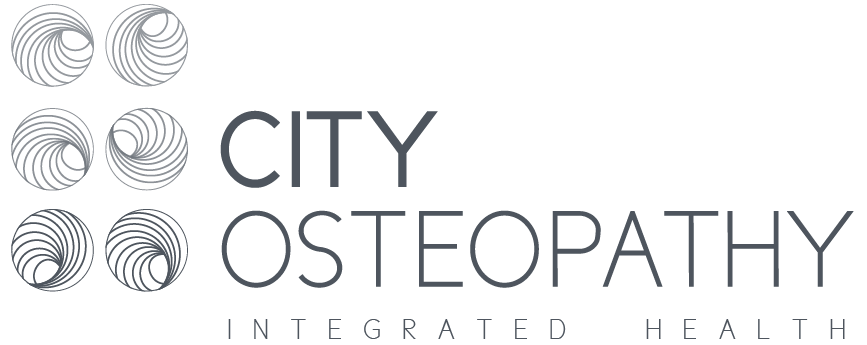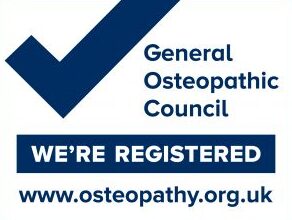The Role of the Abdominal Diaphragm in Stress: City Osteopathy’s Perspective

At City Osteopathy, we often see patients presenting with a range of issues that are deeply connected to stress—whether it’s muscular tension, digestive discomfort, or even chronic pain. While many factors contribute to how stress manifests in the body, we pay close attention to a key player in the body’s response to stress: the abdominal diaphragm.
The diaphragm is commonly known as the muscle responsible for breathing, but its role goes far beyond that. It is a central component in how your body manages physical and emotional stress, and when it’s not functioning optimally, the impact can be felt throughout your entire system. Here’s how we approach the role of the diaphragm in stress and how osteopathy can help.
How Stress Affects the Diaphragm
When patients come to us with stress-related issues, they’re often unaware of how much their diaphragm is involved. The diaphragm is a dome-shaped muscle that separates the chest cavity from the abdomen, playing a crucial role in breathing. Under normal conditions, it moves up and down effortlessly with each breath, aiding in oxygen flow, digestion, and even circulation. However, when we experience stress, the diaphragm often becomes tense or restricted, leading to shallow, inefficient breathing.
This is particularly common in patients who feel constantly “on edge” or who experience anxiety. Stress can cause a shift towards shallow chest breathing, limiting the diaphragm’s movement and preventing the full expansion and contraction of the lungs. This not only reduces oxygen intake but also keeps the body in a heightened state of tension.
The Diaphragm’s Link to Physical Symptoms
We often see patients presenting with symptoms such as:
- Upper back and neck tension: Shallow breathing forces the accessory muscles in the chest, neck, and shoulders to compensate, leading to increased tension in these areas.
- Digestive discomfort: The diaphragm is closely linked to the abdominal organs, and when its movement is restricted, it can affect digestion and contribute to bloating, discomfort, or even acid reflux.
- Chronic fatigue: Shallow breathing means less oxygen is reaching the tissues, leading to feelings of fatigue or sluggishness.
- Postural imbalances: A restricted diaphragm can contribute to poor posture, as the body compensates for the lack of movement, creating imbalances that may lead to pain.
Our Osteopathic Approach
At City Osteopathy, we take a holistic approach to understanding the relationship between stress and the diaphragm. When patients present with stress-related symptoms, we consider how the diaphragm’s function might be contributing to their overall discomfort. Through gentle, hands-on osteopathic techniques, we aim to restore the diaphragm’s natural mobility and support the body’s ability to manage stress more effectively.
Here’s how we help:
- Restoring Diaphragmatic Movement
Our osteopaths use gentle manipulation techniques to release any tension or restrictions in the diaphragm. By improving its mobility, we help restore normal breathing patterns, allowing for deeper, more efficient breaths. This encourages relaxation and helps bring the body out of the “fight or flight” mode that stress often triggers. - Improving Posture and Alignment
A restricted diaphragm can affect posture, pulling the body out of alignment as it compensates for poor breathing patterns. By addressing these imbalances, our osteopaths can help alleviate tension in the upper back, neck, and shoulders, allowing for better posture and reduced muscular strain. - Supporting Digestive Function
Many patients don’t realise the impact that restricted diaphragmatic movement can have on digestion. The diaphragm plays a role in massaging the abdominal organs as it moves up and down with each breath. When this movement is limited, digestion can become sluggish, leading to discomfort. By releasing tension in the diaphragm, we aim to support healthy digestive function, improving issues such as bloating and discomfort.
4. Promoting Relaxation
One of the greatest benefits of diaphragmatic breathing is its ability to calm the nervous system. When the diaphragm moves freely, it stimulates the parasympathetic nervous system, which promotes relaxation and helps reduce the physiological effects of stress. Our treatment supports this natural calming response, helping patients manage their stress more effectively.
Teaching You to Breathe Better
Beyond the hands-on treatment, we also believe in empowering our patients with the knowledge and tools they need to manage stress on their own. At City Osteopathy, we often teach diaphragmatic breathing exercises that patients can practise at home. These exercises are designed to encourage proper diaphragm movement and help reset the body’s natural rhythm, promoting calm and reducing stress in daily life.
Simple Diaphragmatic Breathing Exercise:
Sit or lie comfortably in a quiet space.
Place one hand on your chest and the other on your abdomen.
Take a slow, deep breath in through your nose, focusing on expanding your belly rather than your chest.
As you inhale, you should feel your abdomen rise, while your chest remains relatively still.
Exhale slowly through your mouth, allowing your belly to fall as you release the breath.
Repeat this process for several minutes, focusing on the rhythm of your breath and allowing your body to relax.
This exercise can be particularly helpful during moments of stress or anxiety, as it encourages the body to return to a more relaxed state.
A Holistic Approach to Stress Relief
At City Osteopathy, we understand that stress manifests in many ways and affects the body as a whole. Our osteopathic approach is designed to address the root causes of stress-related symptoms, particularly those linked to the diaphragm’s function. By improving diaphragmatic mobility, posture, and breathing patterns, we help our patients manage stress more effectively and support their overall well-being.
Book an Appointment Today
If you’re struggling with stress-related symptoms such as tension, digestive discomfort, or poor posture, we’re here to help. Book an appointment at City Osteopathy today, and let our experienced osteopaths support you in restoring balance, relaxation, and better health through holistic care.


